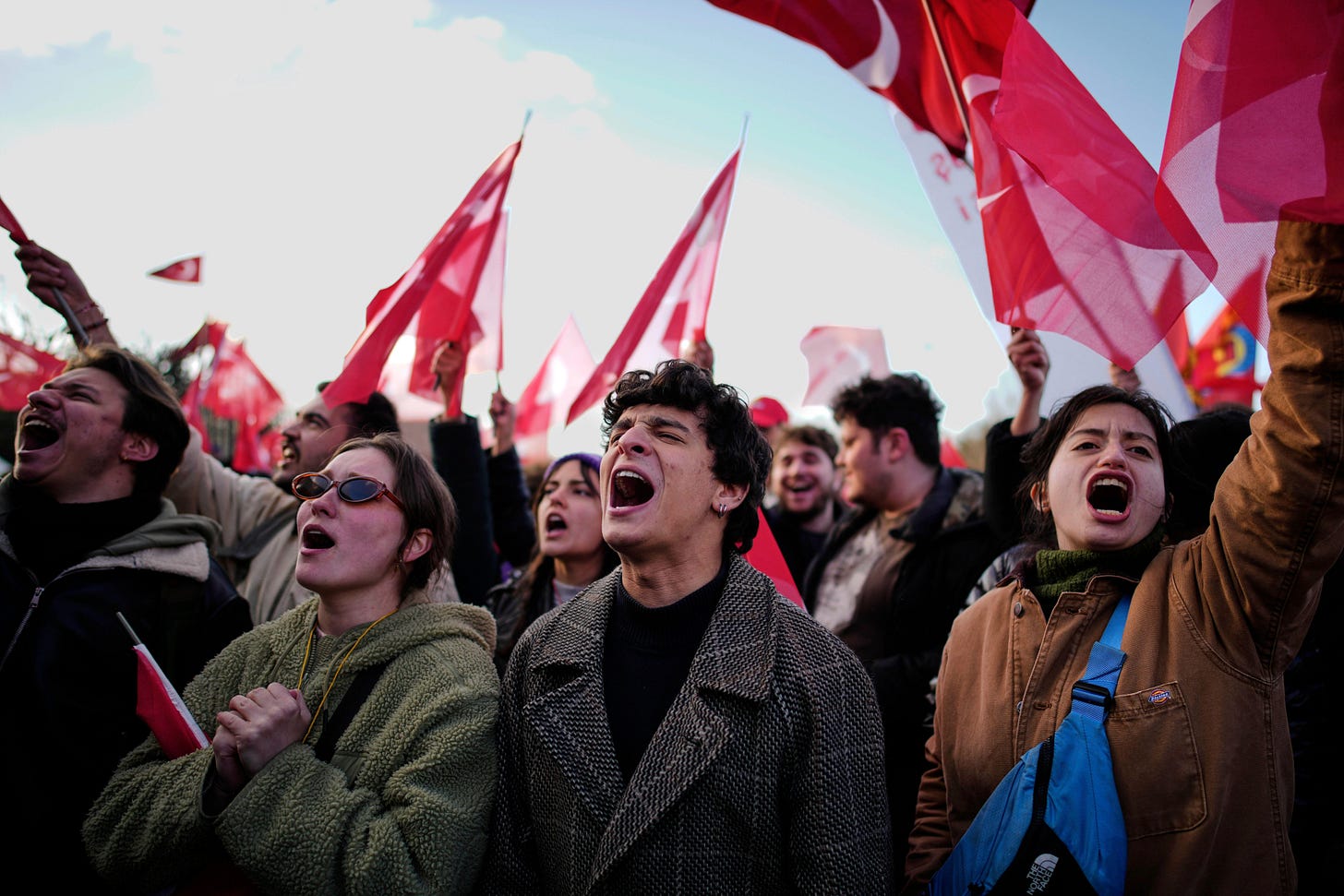Erdogan’s arbitrary Islamist rule is destabilising a vital NATO member
Unrest in Turkey raises the spectre of serious civil strife within a NATO member state at a time when the Ukraine war and the Trump administration are creating uncertainty and volatility.

The increasingly serious disturbances in Turkey, a NATO member state, which have brought the future of Turkish strongman Recep Tayyip Erdogan into question, in the view of some commentators, furnish fresh cause for anxiety in yet another sensitive geopolitical “hotspot”. That said, Erdogan is an accomplished survivor who has ducked and weaved his way through past crises, so it is perfectly possible he will similarly overcome his present difficulties. Whether NATO and the West would be better off with, or without, Erdogan is another question.
The latest unrest was provoked by the government’s arrest of Ekrem Imamoglu, the popular mayor of Istanbul, along with more than 1,000 other individuals, on 19 March. The mayor has been caught up, on the face of it, in a government drive against corruption and links to terror groups. But the real reason for his arrest, in the eyes of most observers, is that he is the candidate best placed to defeat Erdogan in the 2028 elections. If, however, he is convicted and sent to prison, that electoral threat to Erdogan would be removed.
The move is so transparent that European countries have denounced the arrest as an affront to democracy. Mayor Imamoglu’s opposition Republican People’s Party (CHP) has mobilised many thousands of anti-Erdogan demonstrators in the streets of Istanbul, with the protests spreading to the capital Ankara. The question being asked by dissidents and foreign governments alike is: has Erdogan gone too far this time?
If he has, what will be the outcome? Could the protests escalate into a full-blooded uprising, aimed at the violent overthrow of Erdogan? At present, that seems unlikely, with the opposition even announcing that the demonstrations will end next week. Erdogan’s security forces are well-equipped and ruthless. So, the fall of Erdogan, in the short term, does not seem likely.
On the other hand, in urban protests against oppressive security forces, a few misdirected bullets could create martyrs and provoke popular rage, leading to an uncontrollable surge of popular violence, as has frequently been seen, in many countries, throughout modern history. From Erdogan’s viewpoint, the existence of the protests reduces his authority and places a question mark over his political future. It is a safe bet that the strongman, who has temporised his way out of past difficulties, will be searching for a face-saving means of effecting a limited retreat, to disembarrass himself of popular protests discrediting his regime in images seen around the world.
But here he has painted himself into a corner. The release of at least a certain proportion of those arrested, in other circumstances, could defuse the situation; but the figurehead of public protest is Imamoglu. If Erdogan were to release him now, he would emerge from confinement as a popular icon and symbol of effective resistance to the regime. It would make him a totemic figure who would almost certainly defeat Erdogan in 2028. By a supreme irony, Erdogan would have awarded his most dangerous opponent the celebrity that would lift him and his CHP movement over the bar at the elections and end Erdogan’s rule.
The alternative scenario is to keep Imamoglu under arrest and bring him to trial, hoping that sufficiently persuasive evidence of corruption can be presented to alienate public support. But, in that event, the CHP will scream from the rooftops that the evidence is fabricated and Imamoglu is innocent (a rare condition among Turkish politicians). Yet even this thorny dilemma does not represent the plenitude of Erdogan’s problems. The Turkish president is an eccentric character; in certain respects, there is an irresistible parallel with Donald Trump.





